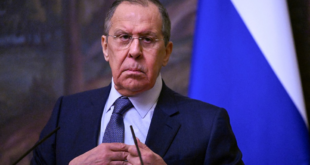WASHINGTON (Reuters) – The Pentagon said on Wednesday an Afghan national it described as a dangerous terrorism suspect had been transferred to the U.S. military prison camp at Guantanamo Bay, CubaThe man, identified only by the name Inayatullah, was captured as part of operations against violent extremists in Afghanistan, the Pentagon said in a statement.
“He has admitted that he was the Al Qaeda Emir of Zahedan, Iran, and planned and directed Al Qaeda terrorist operations,” the Pentagon said.
Inayatullah had acknowledged facilitating the movement of foreign fighters, the statement said.
“Inayatullah met with local operatives, developed travel routes and coordinated documentation, accommodation and vehicles for smuggling unlawful combatants throughout countries including Afghanistan, Iran, Pakistan and Iraq,” it said.
“Due to the continuing threat this terror suspect represents and his high placement in Al Qaeda, he has been transferred to Guantanamo,” the Pentagon said.
Navy Cmdr. J.D. Gordon, a Pentagon spokesman, said a decision on whether to prosecute Inayatullah would be made at a later date.
“He is currently being detained as an unlawful enemy combatant in our struggle against extremists at war with our country,” Gordon said.
Human rights groups and foreign governments, including U.S. allies, have called on the United States to close the Guantanamo prison, arguing that holding inmates there for years without trial violates international legal standards.
President George W. Bush’s administration has said the camp is legal and necessary to hold dangerous individuals.
Bush and Defense Secretary Robert Gates have said they would like to close the camp but that it has proved difficult to find a way to ensure Guantanamo’s most dangerous detainees could be imprisoned legally in the United States.
There are about 340 detainees now at Guantanamo, the Pentagon’s statement said.
 Eurasia Press & News
Eurasia Press & News



